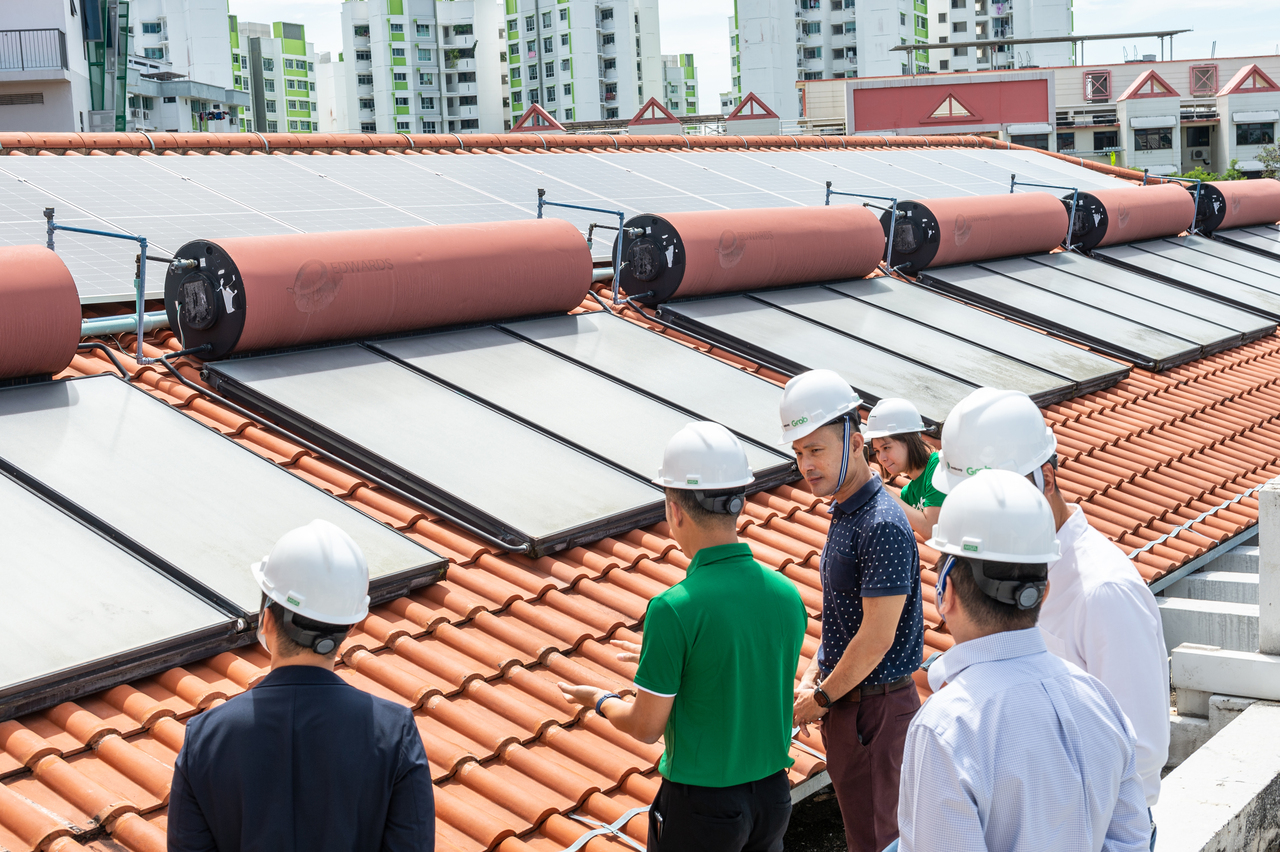Grab, Sembcorp install solar panels at Sata CommHealth HQ in bid to help charities cut carbon footprint
Sign up now: Get ST's newsletters delivered to your inbox

The donation marks the companies' first shot at helping non-profitorganisations reduce their carbon footprint by tapping the sun.
PHOTO: GRAB SINGAPORE
Follow topic:
SINGAPORE - To support Singapore's plan to rely on the sun for 4 per cent of its energy needs by 2030, Grab Singapore and Sembcorp Industries have joined hands to install solar panels for free at Sata CommHealth's headquarters.
The 182 solar panels were unveiled on Friday at the charitable healthcare organisation's building in Bedok.
Sata CommHealth is the first beneficiary under Grab's programme to help non-profit organisations reduce their carbon footprint by tapping the sun, with the solar panels installed by Grab's partner, Sembcorp Industries.
The panels are expected to generate 10 per cent of the headquarters' energy needs annually, and the savings are equivalent to the cost of flu vaccinations for 500 seniors, said Sata CommHealth chairman Stanley Sia.
He said: "(The solar panels) can power 560 four-room Housing Board flats and offset close to 1 million kg of carbon dioxide emissions over the next 20 years... With the savings, we can do more for our beneficiaries."
Sata CommHealth, which celebrated its 75th anniversary in August, provides services that help seniors and the needy fight heart, bone and chronic illnesses, and most recently Covid-19.
The panels are funded by Grab's Green Programme, which has collected more than $300,000 from customers who donate 10 cents with every transport ride or GrabFood delivery order.
Sembcorp Industries will operate and maintain the panels for free for five years, said Ms Valerie Lee, the company's head of corporate affairs for Singapore and South-east Asia.
Mr Baey Yam Keng, Senior Parliamentary Secretary at the Ministry of Sustainability and the Environment, and Transport, attended Friday's launch.
He said that with limited land, manpower and alternative energy options, Singapore is especially challenged in its climate mitigation actions, and solar energy is the most viable and promising renewable energy source.
Under the Singapore Green Plan, which was announced in 2021, the authorities aim to decarbonise the energy sector by ramping up solar deployment by five times to at least 2 gigawatt-peak by 2030. This is equivalent to powering around 350,000 households annually.
"But the efforts that the Government makes will not be enough to achieve this goal," Mr Baey said.
Managing the impact of climate change requires partnerships between the people, private and public sectors, he added, citing Grab and Sembcorp's initiative as an example.

